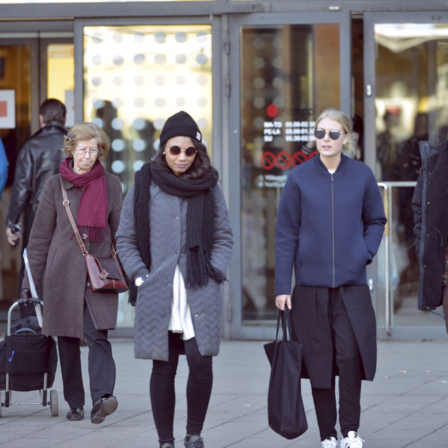When I go shopping, I swipe my customer card. When I go jogging, I use a mobile app to measure the distances I run, my speed and running technique. The tax administration knows how much I earn and my bank knows what I spend my earnings on (particularly how much I owe the bank). The telephone operator has a good idea of the amount, target and duration of the phone calls I make.
A wide range of data has been gathered on all of us for some time, while the amounts gathered are increasing rapidly as society becomes more digitised. These data reserves create countless opportunities for the development of new types of personalised and customer-oriented services based on citizen engagement. The data gathered also provides you and me with a wider range of tools for controlling our lives and promoting our personal well-being as we see fit.
But there is a big “if” in all this.
As the amount of data grows, the way in which data gathered on individuals is managed has become the key issue. Data use is difficult, if not impossible, if we lack control over it ourselves, as has traditionally been the case. With respect to personal data, we are so accustomed to fragmented storage solutions and being unaware of best practices that we view such shortcomings as normal.
Transferring the management of data on individuals from the authorities to citizens would represent a radical change of mindset that could have fundamental societal and social impacts. The governance structure can either support such change or impede it. If the goal is to enhance the governance model’s engagement of citizens and self-regeneration, the use and management of data gathered on us must be placed in our own hands.
This would promote the development of new types of personalised and customer-oriented services based on citizen engagement. It would also give us the tools to monitor what the authorities are doing with our data. The fact that we can monitor the accuracy of data gathered on us also improves the quality of such data. One Finnish project related to data gathered on individuals’ health is the health account Taltioni. Its users own the data they have stored in their personal health accounts.
Legislation helps us take control over our own data
According to the British think tank Nesta’s recent assessment, 2016 will be the breakthrough year for “digitally enabled and patient-led” medical research. Nesta believes that the rapidly growing measurement and use of personal health data by the individuals concerned has already generated new types of virtual patient communities, for example, whose expansion could lead to the production of new types of data usable in medical research.
A prime example of such a community is PatientsLikeMe, in which more than 200,000 people make their data available for the development of new breakthrough treatments – in practice, they are changing lives.
Sitra believes that the idea that citizens are primarily responsible for managing the data gathered on them should be set as a principle underlying all new legislation on the issue. Citizens’ opportunities to use such data must be put on an equal legislative footing with privacy protection. Common standards must also be created for the processing of personal data. Our right and access to the data that has been gathered on us should be regulated by legislation, as should the right to transfer such data to us or other parties for further use.
This is also the purpose of the long prepared and recently approved General Data Protection Regulation, which strengthens the role of citizens and their rights to the data gathered on them with respect to international corporations such as Google and Facebook.
For Sitra, giving citizens ownership of the data gathered on them means granting authorities such as the police, the tax administration or doctors access to such data on a case-by-case basis when necessary for their work. Storing personal data in a single location and having the right to access such data would allow us to monitor who gains access to our data at any given time.
We have long known that information is power. Aided by digitisation, such power can now be transferred to where it belongs – with the people.



Recommended